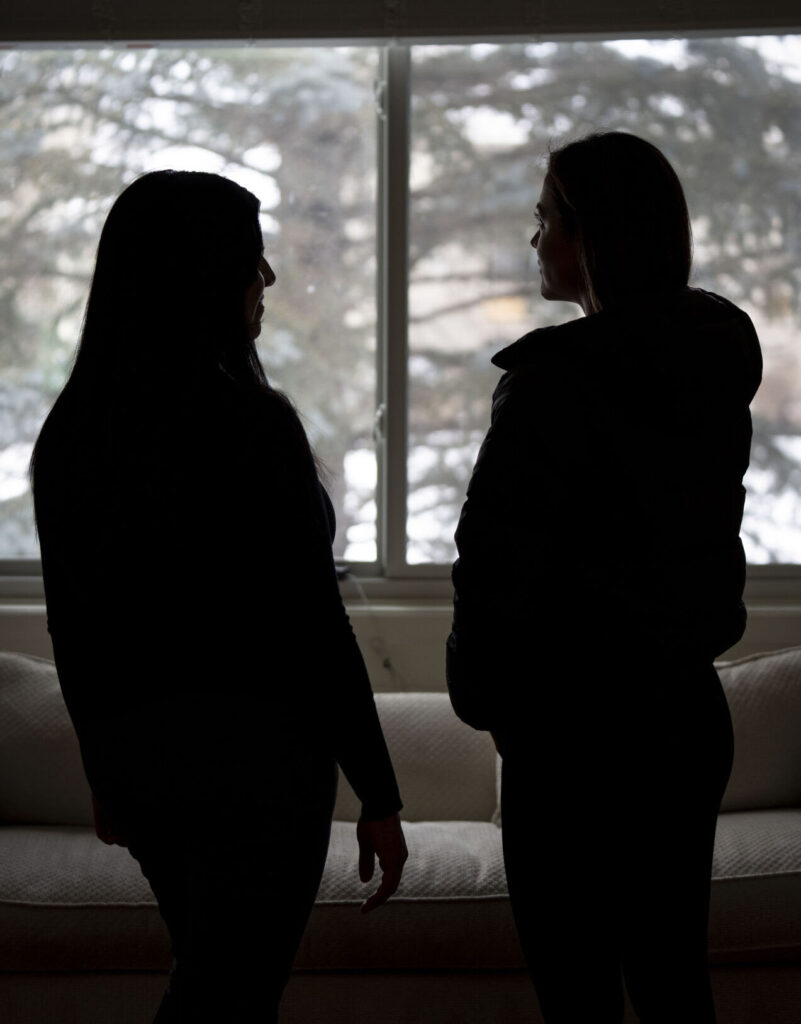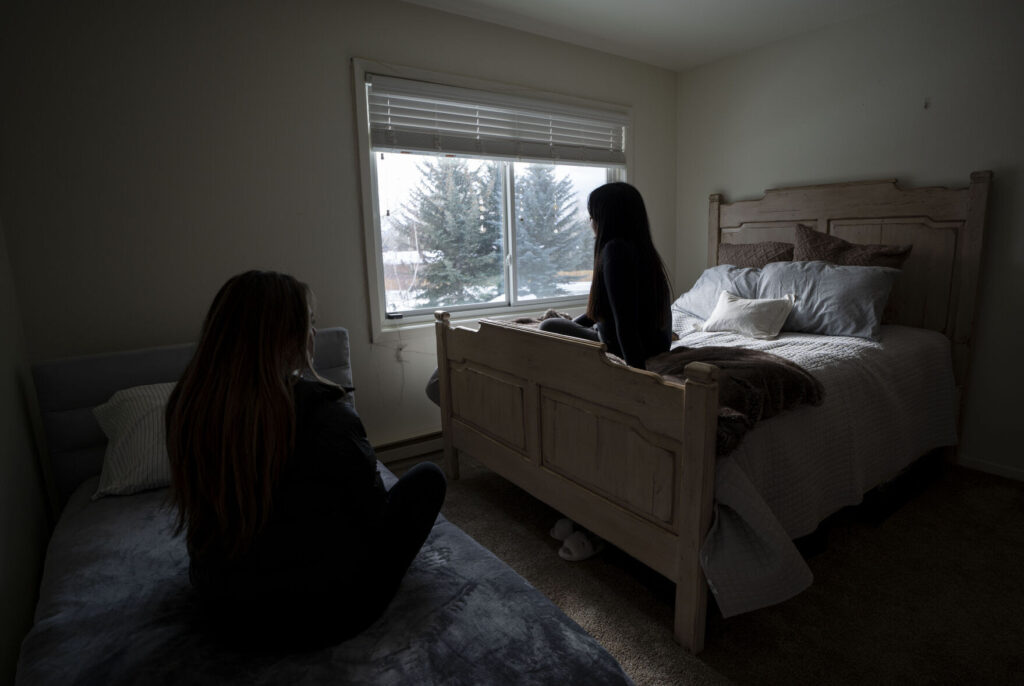This reporting project is a collaboration between the Jackson Hole News&Guide and KHOL. Readers can listen to this piece on 891khol.org or on “Jackson Unpacked,” found wherever readers listen to podcasts.
Laundry machines that don’t dry tenants’ clothes. DirecTV whether tenants watch it or not. Homeowners association fees, even though tenants don’t own the homes.
Those are just a few examples of the types of fees being tacked on to renters’ bills in Jackson and nationwide in a trend that’s drawing scrutiny from housing departments from Teton County all the way to the White House.
“I don’t know that this is the intention of the landlords,” said April Norton, director of the Jackson/Teton County Housing Department. “But what we hear from people is, ‘Hey, I thought that this unit cost $2,700 a month. So I get there, I signed the lease, and all of a sudden, there’s this mandatory extra $300 a month.’”
The lack of transparency not only catches renters off guard but also makes it harder for the housing department to track how much people are paying to rent an apartment in Teton County. And it’s not just the fees, but the way they’re enforced, that’s adding up to more bills and more stress for renters.
A two-bedroom apartment at Latitude 43, the 2023 rebrand of Blair Place Apartments, comes with eight separate fees tacked onto the monthly rent. The extras include parking, utilities, trash, electric, water, sewer, a homeowners’ association fee and a “real estate tax.”
Pulling up receipts on her phone, renter Susan said her trash costs about $40 a month. Water is another $40. The HOA fee runs $25, followed by $12 for sewer, $10 for communal electric and $10 for a real estate tax.
That’s on top of $3,150 in rent for her two-bedroom apartment. Renters asked that their last names not be used in this story for fear of losing their housing or having trouble finding new housing.
“I wanted to have a pet,” the 35-year-old said. “I find out that I have to pay a $200 nonrefundable deposit plus $200 that is going to be refundable. And $50 per month.”

Temporarily sharing one room of a two-bedroom Latitude 43 apartment, Steffany, 34, and Susan, 35, have faced not only housing issues but troubles with hidden fees and new regulations from the apartment management. (Kathryn Ziesig/News&Guide)
The complex has 294 units and provides a significant chunk of rentals for working households, visible from the number of trucks in the parking lot wrapped in decals for landscaping, gardening and property management companies.
Susan said she first learned about the fees after ownership changed hands. A California-based private equity firm bought the complex in September 2021.
Before that, the Oliver family owned and managed the apartments, first permitted in 1992 and built out over roughly 15 years. The new owners took out a $79.8 million mortgage on the property but said the full sale price was “confidential” in a 2021 interview with the News&Guide.
For decades the apartments had housed fitness instructors, electricians, carpenters, nurse assistants, house cleaners, police officers and airline, restaurant and National Park Service employees.
Following the change in ownership and a global pandemic that spiked demand, rental rates have been on a steep climb. And Latitude 43 is more affordable than other complexes, which also charge extra fees.
Renting a two-bedroom apartment at The Timbers and Sagebrush Apartments runs closer to $3,200 a month. Hidden Hollow and Aspen Meadows hover around $3,500 a month.
Smaller apartments cost a bit less. While the median market rent for a one-bedroom at Latitude 43 costs $2,300, according to a rent report released this year, Hidden Hollow charged $2,747 and The Timbers $3,000.
Rent receipts from tenants in new projects such as Hidden Hollow apartments show added fees like a mandatory DirecTV fee of $50, $27 HOA fee and $15 to $30 “tax back” fee. Leases from apartment complexes list tax-related fees but do not explain the tax, nor the justification for passing it on to renters.
Hidden fees are a trend beyond housing and Jackson Hole.
The Biden administration started attacking what it calls “junk fees” in 2022. These are the tacked-on dollars that come near the end of the process of buying items such as airline or concert tickets, as well as credit card late fees. Without much control over the companies themselves, the administration is attempting mostly to require companies to show the full price up front.
A 2024 report from the University of Texas at Austin School of Law cited fees such as application fees, pest control and cable.
“These charges, which are tacked onto the rent, obscure the true price of housing and prevent comparison shopping,” the report said. “They impose financial strains on tenants and create barriers to affordable housing access.”
Tenants at Latitude 43 said the fees were frustrating, in part, because they didn’t result in better living conditions.

Following a breakup and loss of housing, Steffany, 34, temporarily moved in with Susan, 35. (Kathryn Ziesig/News&Guide)
Just around the corner from Susan’s apartment, a mother of three said the previous owners were very strict but kept the hallways tidy. Under the new management, the building is dusty, trash piles up, and garbage sits out longer in common spaces like the laundry room, tenants said.
The Jackson/Teton County Housing Department launched a new survey in 2023 to gather costs and experiences of renting, after some of the five apartment complexes stopped answering a more direct request for information — another way housing transparency has waned. The department got a robust response with 907 answers, some of which pointed to the problem of add-on fees.
“Blair Place makes you pay for everything now, including the owner’s property taxes, with no upgrades or better services for existing tenants,” one comment said. All comments were anonymized in the report.
Several renters said they had grandfathered rates at Latitude 43. The housing department’s rent report asked respondents to report everything they pay for housing.
Rent information in the Wyoming Cost of Living Index does not include specific associated fees, said Amy Bittner, principal economist in the state’s Economic Analysis Division. The data comes from classified ads in newspapers, online listings and directly contacting landlords, apartment complexes and real estate companies.
The Jackson housing department is gearing up to release a survey this month about its regulations. One of the top questions, Norton said, is if extra fees should be included in the advertised rent.
For now, increasing transparency is the best response the government has to added fees.
“If it’s a free-market unit, it’s hard for us to get that information,” Norton said, “unless a renter in the complex is willing to share.”






